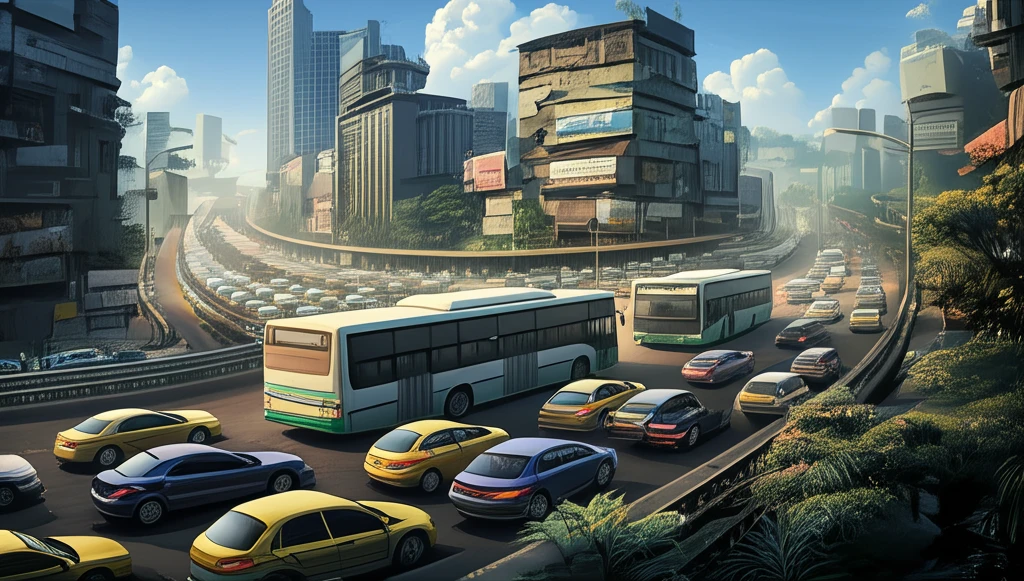
Dhaka's Traffic Fix: How Smarter Buses Can Beat Gridlock
"Unlocking Dhaka's potential: Why prioritizing public transport is key to easing traffic congestion and boosting economic growth."
Dhaka, one of the world's fastest-growing megacities, faces an immense challenge: crippling traffic congestion. Over the past few decades, its metropolitan population has exploded, soaring from 3 million in 1971 to around 18 million today. This rapid growth has placed immense strain on the city's infrastructure, leading to traffic jams that can last for hours.
The situation is projected to worsen. Over a twenty-year time-span beginning from 2015, Dhaka's population is expected to jump by another 50%, reaching a milestone of 26 million in 2035. Without significant changes, the already strained transport system risks complete gridlock, threatening the city's economic vitality and the well-being of its residents.
But what if there was a better way forward? A new study suggests that prioritizing public transport, particularly buses, could be the key to unlocking Dhaka's traffic woes. This approach promises not only to ease congestion but also to stimulate economic growth and improve the quality of life for millions.
The High Cost of Congestion

Dhaka's traffic congestion isn't just an inconvenience; it's a significant economic drain. The average traffic speed in Dhaka is a snail-paced 6.4 kph. If vehicle growth continues unchecked, this could plummet to a mere 4.7 kph by 2035 – slower than walking speed.
- Too many cars on the roads.
- Inadequate public transport.
- Poor urban planning.
- Economic losses due to delays.
A Call for Change
Robert Gallagher's analysis provides a compelling case for prioritizing public transport in Dhaka. By embracing a bus-centric approach, Dhaka can alleviate traffic congestion, boost its economy, and create a more livable city for its residents. The path forward requires a shift in priorities, strategic investments, and a commitment to creating a sustainable and efficient transport system that serves the needs of all.
